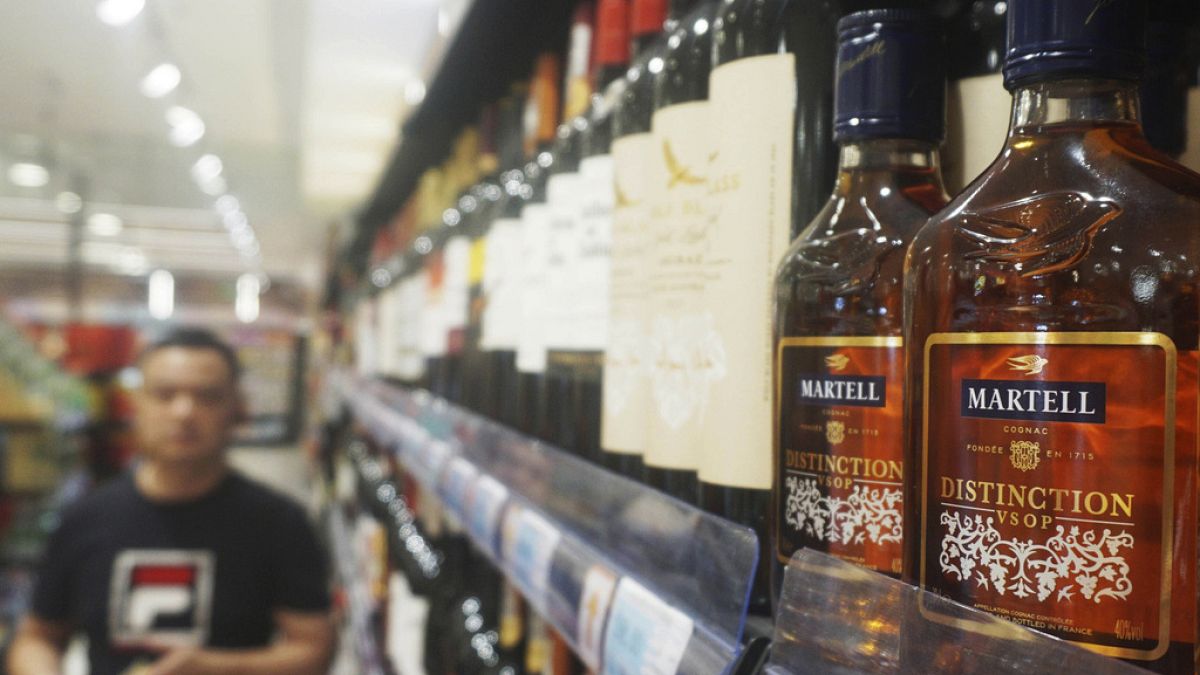

In recent times, the landscape of international trade has been a field of unfolding challenges and dialogues, notably involving major global players—Europe, China, and the United States. Two prominent threads have emerged: the mounting tensions surrounding Chinese duties on European goods, specifically French cognac, and the announcement of potential new tariffs by former U.S. President Donald Trump, targeting a range of European exports.
The European Union has expressed concern over what it perceives as disproportionately high duties imposed by China on French cognac. This development complicates the preparatory arrangements for the upcoming bilateral summit scheduled later this month in Beijing. While these tariffs have been dubbed ‘unfair’ by the EU Commission, the focus remains on finding a balanced and negotiated outcome that will ease trade relations between these influential economies. The EU seeks to address these issues diplomatically, demonstrating the importance of dialogue in resolving trade disagreements.
Concurrently, former U.S. President Donald Trump has announced his intention to significantly increase tariffs on European exports, with suggested hikes reaching up to 70%. The nations affected have been urged to negotiate new terms towards avoiding escalated import costs by an approaching deadline of July 9. Notably, the rhetoric hints at a larger strategic goal of adjusting what Trump perceives as imbalanced trade practices.
Among Trump’s proposed tariffs is a specific 17% levy on food and farm produce exports from Europe. This move would impact a variety of renowned European delicacies entering the American market, such as Belgium’s fine chocolate, the distinctive Kerrygold butter from Ireland, and the prized olive oils of Italy, Spain, and France. The European Union has responded by voicing a preference for negotiation, even as it prepares cautiously for potential retaliatory measures.
Despite these tensions, there exists a mindful undercurrent where parties acknowledge the critical role of mutual understanding and cooperation. Trade, being a vital component of economic prosperity and diplomatic ties, stresses the need for communication that transcends geographical boundaries.
In the backdrop of these developments lies a broader conversation about global trade practices—emphasizing the interplay between protectionism and globalization. The EU, maintaining its stand on fair trade, continues to monitor the impacts of such decisions, while simultaneously engaging in dialogue aimed at amicably settling disputes. Through these challenges, the international community is reminded of the intricate balance required to sustain open commerce.
Amidst the potential upheaval in trade regulations and relationships, experts and leaders are called to reflect on the long-term benefits of collaborative strategies. There lies an opportunity for all parties involved to craft agreements that honor the principles of fairness while boosting economic resilience.
As the world watches the developments between the EU, China, and the United States, there remains an optimism that through careful negotiation and understanding, a path towards equitable trade relations can be forged. The commitment to ongoing dialogue underscores a shared vision for stability and growth within the international marketplace.
Looking ahead, the upcoming bilateral meeting between the EU and China offers a stage for diplomatic engagement to address current disparities. Similarly, Europe’s engagement with the U.S. presents an opportunity to redefine trade terms to the advantage of all parties. While uncertainties loom, the spirit of cooperation and resolution continues to guide these international conversations, promising a path towards harmonious trade relations.
Source: {link}
